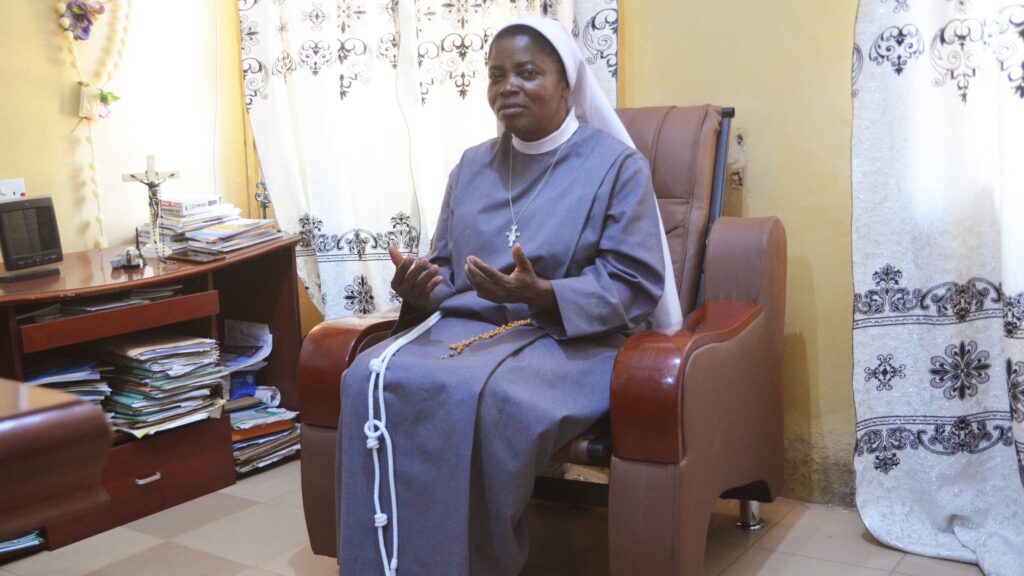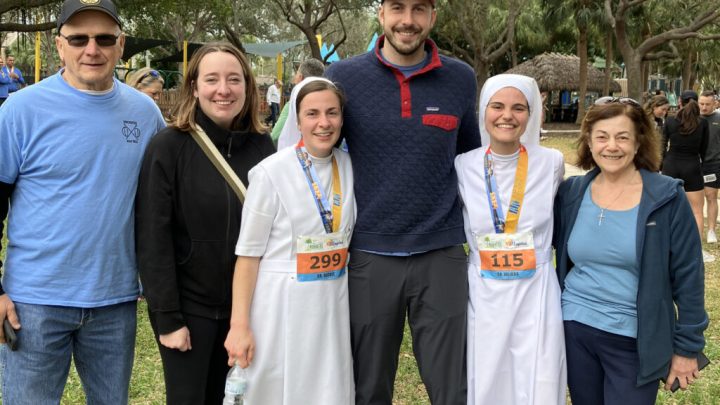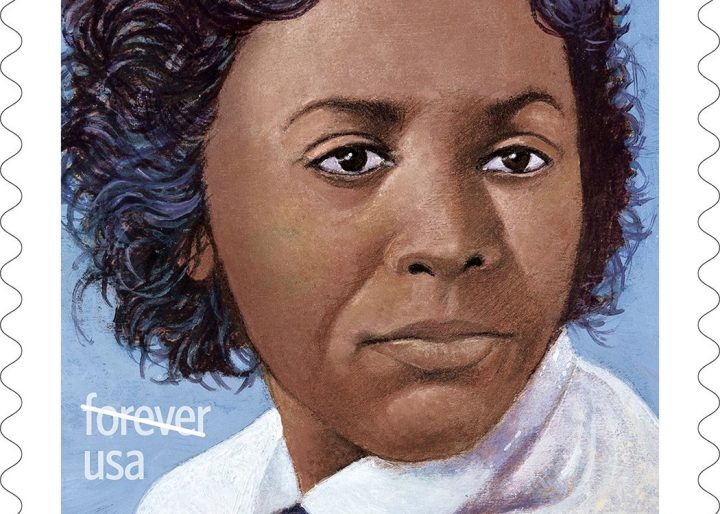
By Valentine Benjamin
WUKARI, Nigeria (OSV News) — It was a day Andre Nkoulou from Cameroon will never forget.
On Sept. 19, 2018, armed groups and government forces laid siege to Nkoulou’s home in Chomba, a village in Bamenda municipality, forcing him to flee. He spent three days crossing several Cameroonian towns and arrived in Nigeria through the national border corridors of Taraba state — the largest host of refugees in Nigeria where he is currently living in a host community.
After more than five years spent in a foreign country, Nkoulou, a father of three and a civil society activist, now volunteers for the Tertiary Sisters of St. Francis in a refugee mission in Takum in the Diocese of Jalingo in northeastern Nigeria.
The sisters are providing humanitarian aid to refugees, like Nkoulou, amid lingering insecurity and Christian persecution.
For them, it’s a service to humanity. Sister Cordelia Anikwem, a Tertiary Sisters of St. Francis and development officer for the refugee program, told OSV News she fears that she and other sisters working in the region might get kidnapped, but the love they have for the people and their vow to serve have made them steadfast.
“The level of persecution and terrorism we are faced with cannot deter us from doing our work in caring and providing for the refugees and serving the Lord. We are endangered, but we are always willing to take all the risks while serving God, because we cannot abandon the people,” she said.
Their work is heroic for the sole reason that Nigerian Christians are one of the most persecuted groups in the world.
Open Doors, an organization that tracks Christian persecution in the world, reported that 90% of the more than 5,600 Christians killed for their faith last year were from Nigeria, with the total number of Christians killed in 2023 up 80% from five years ago. More than 7,600 Nigerian Christians were killed between January 2021 and June 2022.
The Intersociety advocacy group in Nigeria has said over 100,000 unarmed and defenseless citizens have died directly or indirectly outside the law in the hands of security forces in the past eight years, between August 2014 and December 2023.
Still, amid their own insecurity, Nigerian Christians are eager to help their Cameroon neighbors.
Cameroon’s two English speaking regions have been gripped by separatist violence since 2017 when the government took a hard line following strikes by Anglophone teachers and lawyers.
Protesters waved the blue and white flag of Ambazonia — the separatists’ proposed new state. An armed group called the Ambazonia Defense Forces began attacking government soldiers. Dozens of other groups have formed and carry out regular attacks on troops and civilians.
At least 6,000 people have died in fighting, according to the International Crisis Group. The United Nations estimated that over 700,000 people have been displaced. Both sides have been accused of abuses by human rights groups.
Nkoulou said the attack on him came when he formed a coalition with other civil rights groups in his country to put a stop to the ongoing conflict, known as the Anglophone crisis.
“I was a target from both the military and the Ambazonian separatist fighters, because of my involvement in forming a core alliance with other civil society organization leaders who came together to speak up against the use of force as a solution to the problem,” Nkoulou told OSV News.
“I was being hunted and followed because both the government and the Ambazonian boys didn’t want us to intervene as civil society leaders,” he said.
Five years after the attack on his home, Nkoulou has been living in Nigeria without his wife and three children. He doesn’t know if they are alive or dead.
Back in his country, he not only left behind his family but also lost his house, office and other private belongings to arson after he escaped. His younger brother was killed by the Ambazonian fighters.
Since the separatist conflict began in 2017, people of the affected regions have continued to live in constant fear and Nigeria has experienced waves of refugees from Cameroon ever since.
The UNHCR, the U.N.’s refugee agency, estimated that over 87,000 Cameroonian refugees live in Nigeria.
The Tertiary Sisters of St. Francis are caring for over 700 refugees in different homes where they are provided shelter, giving them access to food, water and sanitation as well as essential services such as health care and education.
They are also promoting coexistence with host communities, protecting vulnerable groups — including women and children — against sexual violence, abuse and exploitation.
The sisters also run the Santa Maria clinic, a primary health care facility where they especially provide maternal care to pregnant refugees and also care for children. The clinic was handed over to Tertiary sisters in January 2021 by Bishop Charles Hammawa of Jalingo.
Sister Ziseng Loveline Nyetalem, a nurse and Cameroonian herself, said they started the hospital ministry when they found out that the refugees were exposed to very deplorable conditions.
“Many of the children were malnourished and many were exposed to malaria and diarrhea. Pregnant women also did not have access to health facilities for antenatal clinics,” she told OSV News.
Two other sisters of the congregation provide counseling and PTSD treatment to those who are traumatized.
The effort of the Tertiary sisters is being supported by international donors such as U.S.-based Conrad N. Hilton Foundation; the Franziskaner Helfen, a German charity of the Franciscan order; and the Cameroon Humanitarian Relief Initiative.
Valentine Benjamin writes for OSV News from Abuja, Nigeria.



